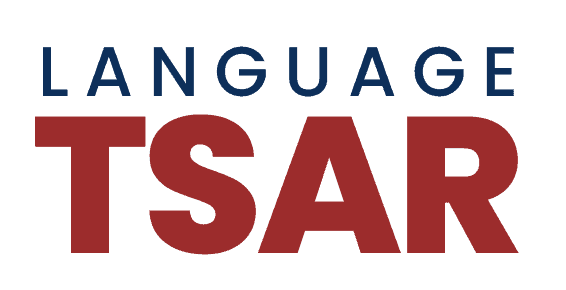Lingq is a language learning platform created by my friend and hyperpolyglot, Steve Kaufmann.
Steve is a big fan of the pioneering research of Dr. Steven Krashen and his comprehensible input theory.
This basically means that one needs a lot of input (listening and reading) in the new language in order to make effective progress. This ‘input’ should be understandable and at the same time challenging in order to speed up the learning process.
You can go and take a look at Lingq by clicking here!
Lingq actually covers all 4 competences (speaking, writing, reading and listening) and is available in over 20 languages, including Russian, Ukrainian, Spanish, French, English, Chinese, German, Portuguese and Italian.
PRICE
Lingq has a premium option at $10/month or a plus option at $39/month. The plus options offers you 3,000 points per month.
Points are used for tutored services like writing correction and live conversation and to buy premium lessons.
HOW DOES IT WORK?
LingQ is structured as a series of lessons featuring a very short texts in your foreign language.
I tried out the program for Ukrainian in early in 2018 as I was learning Ukrainian in the city of Lviv.
You can read through the lesson or listen to the lesson spoken by native Ukrainian speakers, or both.
The lessons are organised so each one builds on the previous lesson making the acquisition of new vocabulary more natural.
Words are color-coded depending on the option you click on to say how well you know them. These are called lingqs. It’s a novel way to track how you are progressing with vocabulary building.
There are 4 categories to click on:
1. New
2. Can’t Remember
3. Not Sure
4. Learned
There are libraries with 1000s of texts in the various languages offered. You can also import your own texts to the platform.
You can choose to learn via flashcards, cloze tests, dictation and multiple choice which are designed to utilize spaced repetition learning to be more effective. This means that the vocabulary chosen is timed so that you are reminded of it just before you are likely to forget it according to scientific research.
LingQ also has an option to pay for a language tutor on the site and a community tab where you can connect with other learners of your target language.
THE PROS
1. Lingq is definitely effective at reminding me of vocabulary just before you’re likely to forget it and its integration with flashcard apps is terrific.
2. It’s a useful complementary platform and the fact that you can input your own texts increases its value to the language learner.
3. It helps you identify exactly the kind of vocabulary that you are likely to forget. I found this very revealing.
4. The option of booking the language tutor through the site removes the necessity to look elsewhere for one (a tutor is something I always recommend to language learners).
THE CONS
1. It can be a bit boring to use (you should choose carefully the texts so that they are interesting for you personally) and the interface does not look that modern.
2. It’s ultimately a complementary platform not a one-stop shop for learning a language.
I would recommend this platform to anyone no matter what their level in the language if they want to build their vocabulary and while it’s not the one course/platform/app you will need to learn a language, it definitely will speed up the learning process and help you go further faster in your target language. The addition of the language tutor option means that LingQ is moving towards becomes a platform on which possibly you could learn a language from zero to fluency in the near future.
If you have used Lingq then write me a comment below about your experience with the platform.

Michael has been an avid language learner and traveler for many years. His goal with LanguageTsar is to discover the most fun and effective ways to learn a language. He is currently learning Japanese, French and Indonesian.



Comments are closed.